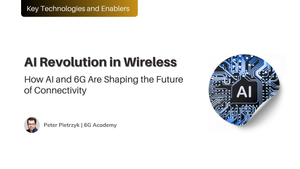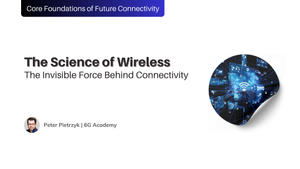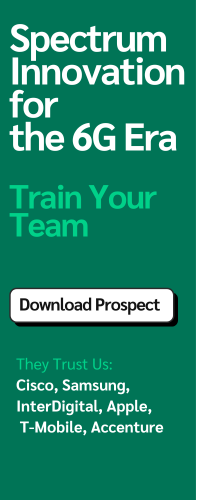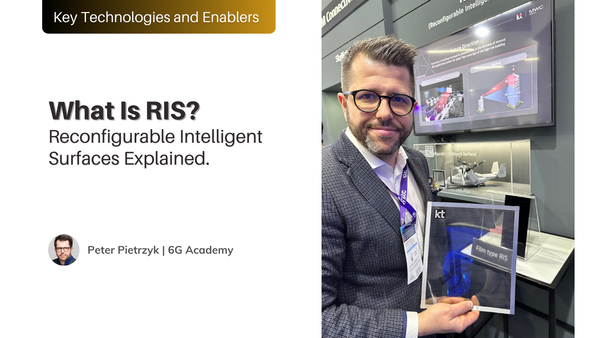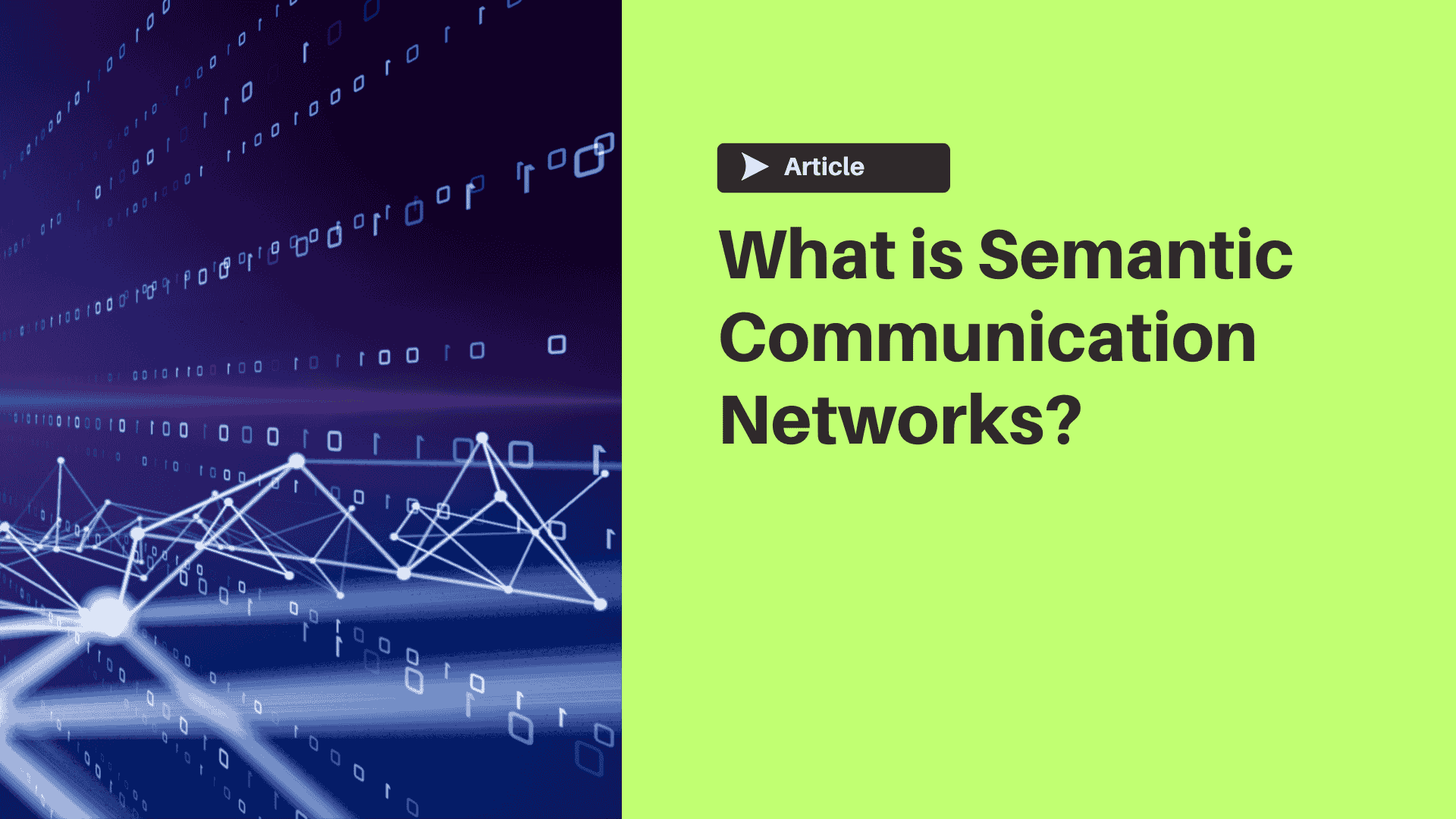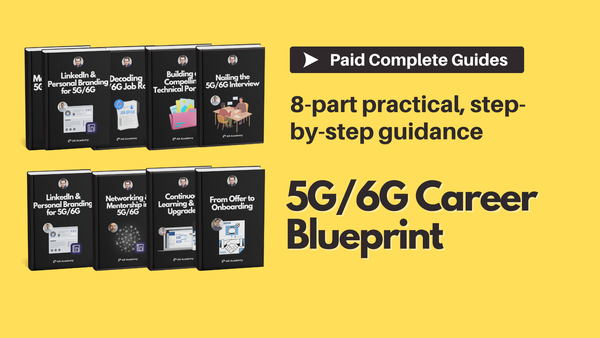In our previous deep dive on BT Group's approach to AI, Open RAN, and 6G, we explored how BT is embracing innovation in telecommunications. This analysis of Vodafone is a continuation of our MNO Spotlight Analysis series, published every Friday.

Executive Summary
Vodafone is leading the charge in Radio Access Network (RAN) automation, leveraging innovative technologies like Open RAN and AI to transform mobile networks and pave the way for 6G. This article explores Vodafone's strategic milestones, key partnerships, and the challenges faced as they work towards creating more efficient, automated, and vendor-agnostic networks. By analyzing Vodafone's approach to RAN automation, we gain valuable insights into how Mobile Network Operators (MNOs) can navigate the evolving telecom landscape.
Key Takeaways:
- Vodafone's RAN automation aims to optimize networks in real time, minimizing manual intervention.
- Strategic collaborations with partners like i2CAT, Cohere Technologies, and the O-RAN Alliance are pivotal.
- Successful trials, such as those in Spain, demonstrate significant network capacity improvements through software-only solutions.
- Vodafone's approach to Open RAN reduces dependency on single vendors, promoting a more flexible network ecosystem.
- Despite progress, challenges remain, including interoperability, security concerns, and workforce skill transformation.
Vodafone at a Glance
| Aspect | Details |
|---|---|
| Global Presence | Operations in over 20 countries, partnerships in an additional 48 markets |
| Subscriber Base | Approximately 300 million mobile customers, 28 million fixed broadband customers |
| Network Technology | 5G deployed in 11 countries; ongoing expansion of Open RAN and automation initiatives |
| Open RAN Deployment | Rolling out Open RAN across 2,500 sites in the UK; plans to expand to Europe and Africa |
| Key Partnerships | Collaborations with Samsung, Nokia, Intel, Mavenir, NEC, and others in Open RAN and automation |
| Revenue Streams | Mobile services, fixed broadband, IoT solutions, private networks, managed services, and more |
| Focus Areas for 6G | AI-driven automation, dynamic spectrum sharing, private 6G networks, network slicing |
| Sustainability Goals | Committed to net-zero carbon emissions by 2040, with energy-saving initiatives across networks |
Vodafone's RAN Automation Journey
1. The Evolution of Vodafone's RAN Strategy
Vodafone's investments in 5G and Open RAN are reshaping how mobile networks are designed, deployed, and operated. By focusing on flexible, vendor-agnostic solutions, Vodafone aims to stay at the forefront of innovation, not just for 5G but also in preparing for the 6G era. Their goal is to create an environment where networks can optimize themselves, reducing manual work and enabling more rapid responses to changing demands.
Vodafone has made substantial strides in building automated networks, which minimize the need for manual intervention. By collaborating with a wide array of technology partners, Vodafone has been able to conduct groundbreaking trials and create solutions that are pushing the industry towards a more interconnected, automated future.
2. Key Milestones and Collaborations
Case Study: Vodafone and i2CAT - Open RAN Security and Automation
In collaboration with the i2CAT Foundation, Vodafone undertook a project focused on leveraging Open RAN's enhanced automation for a multi-vendor management system. This initiative aimed to improve fault resolution and respond to cyber threats faster than traditional networks. The project, named Holistic ORAN Logging & Metrics Security Shield (HOLMES), aimed to enhance security by using machine learning to analyze multi-vendor network logs, identifying potential threats more efficiently.
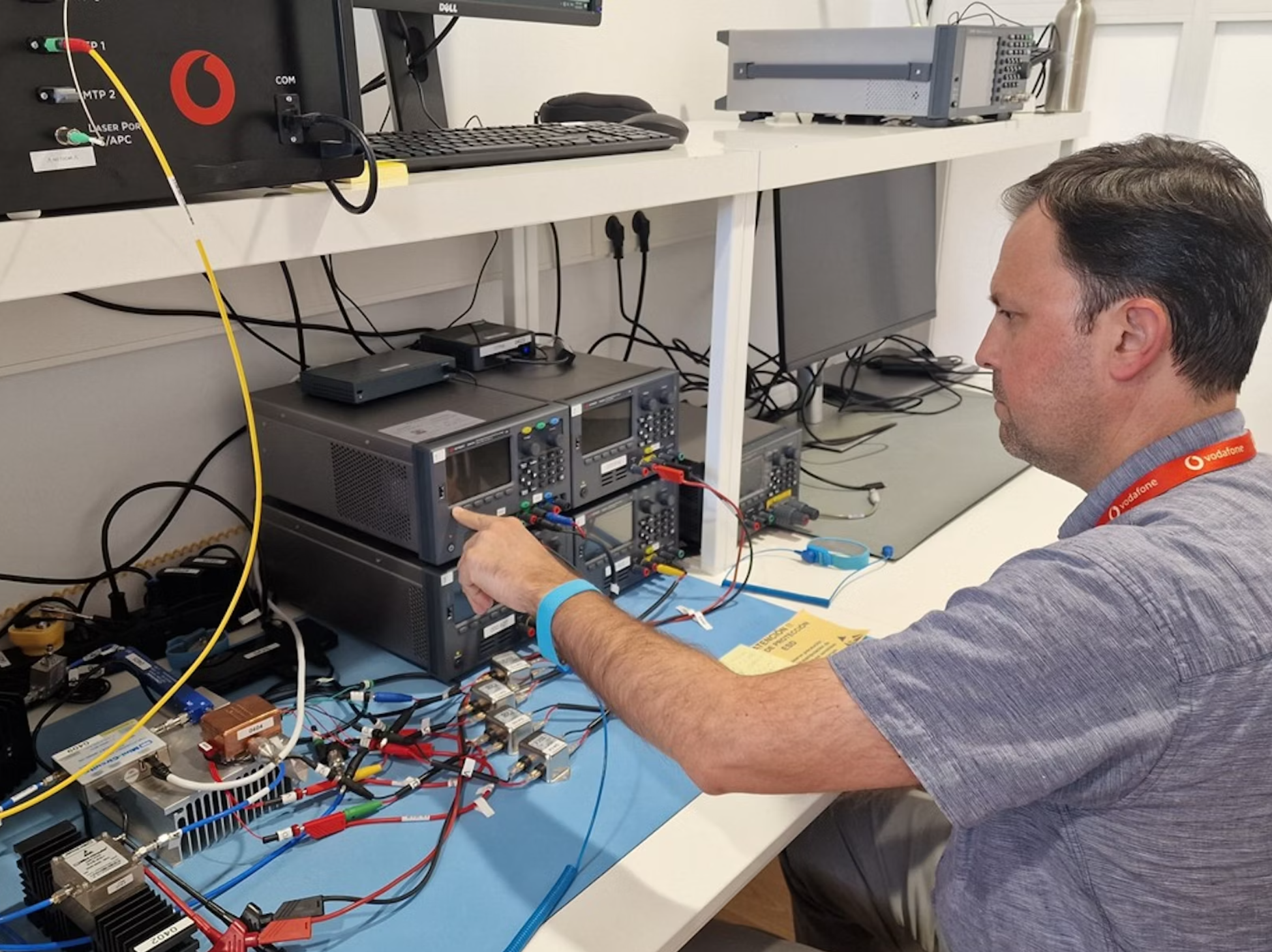
The collaboration also led to the development of a unified dashboard for managing Open RAN events across vast areas, aligning with Vodafone's goal of having 30% of its European cell sites using Open RAN technology by 2030. Francisco Martin, Head of Open RAN at Vodafone, emphasized the impact of this collaboration:
"Our partnership with i2CAT is crucial for building secure, software-driven networks that respond rapidly to demand and reduce manual interventions."
Open RAN and AI-Based RIC Trials
Vodafone's trial of an AI-based RAN Intelligent Controller (RIC) with Cohere Technologies, Intel, and other partners highlights their commitment to vendor-neutral infrastructure and innovation. The RIC platform, integrated with Cohere's Spectrum Multiplier technology, doubled the capacity of 5G cells, showcasing the transformative potential of software-driven spectrum optimization. This trial also demonstrated the value of AI in real-time network optimization, leading to significant operational cost reductions.
Spain Field Trials with Cohere's USM Software
Vodafone conducted significant field trials in Spain, particularly in dense urban environments. By deploying Cohere's Universal Spectrum Multiplier (USM) software, they achieved a 50% increase in network capacity without hardware modifications. This solution provided a scalable path for enhancing spectral efficiency, which is especially important in regions with high traffic demand. The success of these trials illustrates the power of software-driven upgrades in optimizing legacy infrastructure.
3. Commercial Deployment of Open RAN
Building on these trials, Vodafone began the deployment of Open RAN equipment across 2,500 sites in Wales and south-west England, replacing legacy Huawei technology by 2027. This move aims to reduce vendor dependency and enhance network flexibility. Collaborations with Dell, NEC, Samsung, and others further demonstrate Vodafone's dedication to creating a diverse and innovative network ecosystem.
The transition to Open RAN in the UK also underscores the complexity of managing multi-vendor environments. While the benefits include increased flexibility and potential cost savings, ensuring seamless integration remains a significant challenge.
4. AI and Automation in RAN Optimization
Vodafone's integration of AI in network optimization through the RAN Intelligent Controller (RIC) forms the backbone of their RAN automation strategy. By using AI-based applications (xApps and rApps), Vodafone has been able to implement targeted optimizations, such as traffic steering and energy efficiency, significantly reducing manual interventions and improving operational efficiency.
The use of AI-driven solutions also aligns with Vodafone's sustainability goals. For example, energy optimization xApps have been instrumental in reducing power consumption across multiple sites, contributing to the company’s broader commitment to environmental sustainability.
5. Challenges and Opportunities on the Road to 6G
Vodafone and Charité Berlin - 6G Health Applications
Vodafone has also embarked on an ambitious collaboration with Charité Berlin—one of Europe’s largest university hospitals—along with Leipzig University Hospital and several other research institutions, to explore future medical applications using 6G technology. Under the '6G Health' project, funded by the Federal Ministry of Education and Research, Vodafone aims to develop innovations that will improve patient care and enhance medical workflows.
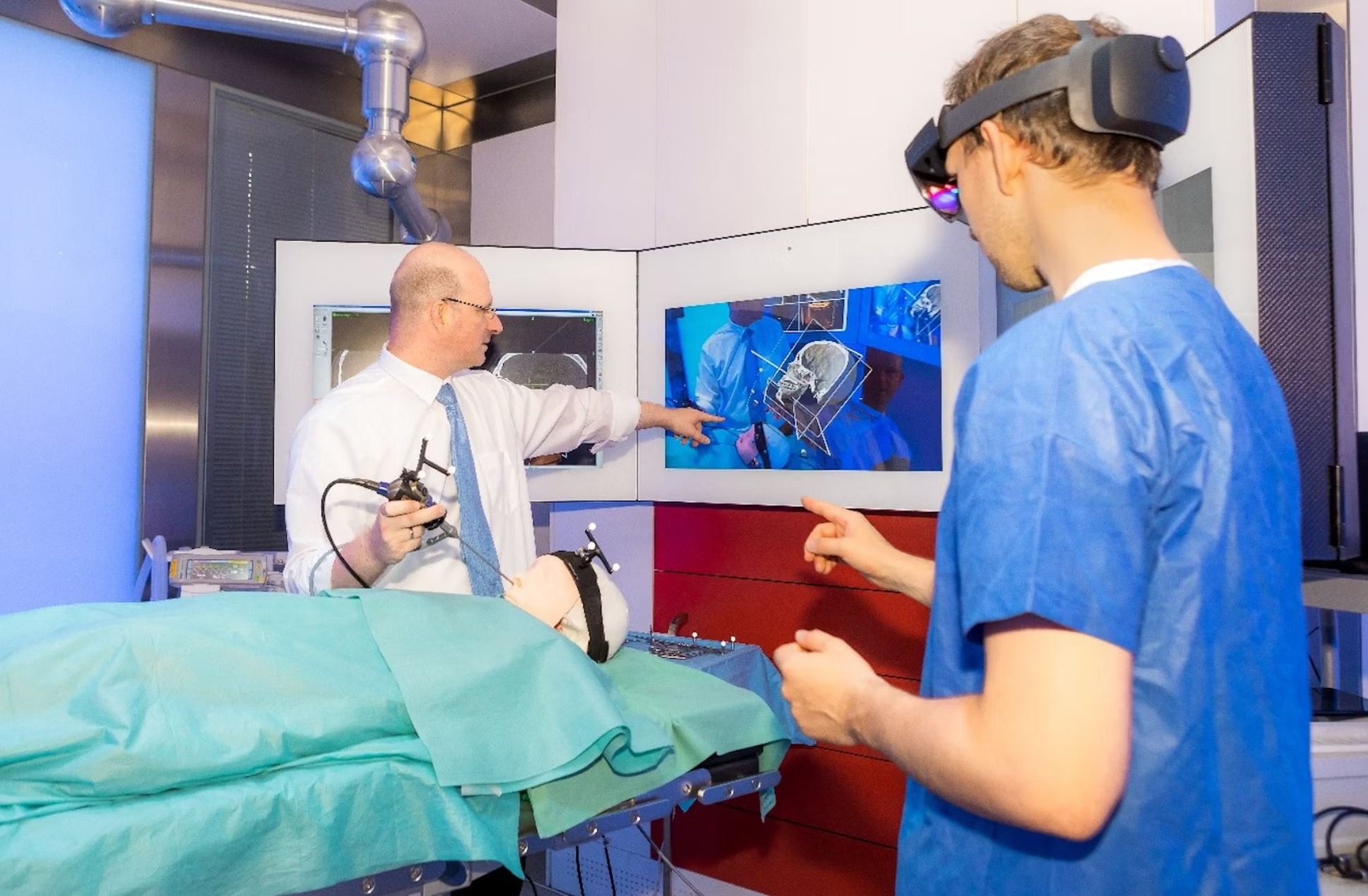
One of the primary focuses is the collection of biosignals—such as brain activity, blood pressure, and heart rate—in real time directly from patients, enabling on-site data processing for rapid diagnosis and faster hospital admissions. Another innovation includes advanced augmented reality (AR) and telemedicine services to assist medical staff during preoperative assessments, providing detailed 3D images of organs and enabling virtual participation from specialists located remotely.
"6G will be more than just a mobile radio network, it will combine mobile communications, sensors and incredible computing power. While 5G is bringing us near real-time applications, especially designed to support industrial and medical services and robotics, with 6G, data is processed so quickly that we will also be able to feel the Internet."
Dr. Ralf Irmer, Head of the Vodafone Tech Innovation Center Dresden
The third aspect of this collaboration is creating a smart hospital infrastructure that connects medical devices and communication systems to optimize workflows and improve patient outcomes. Vodafone’s partnership with Charité Berlin showcases their vision for leveraging advanced connectivity in healthcare, demonstrating the transformative potential of 6G in improving patient care and operational efficiency.
Expanded Discussion on Challenges
As Vodafone navigates the evolving telecom landscape, several thought-provoking questions arise:
- How can Vodafone ensure interoperability among a diverse set of vendors as Open RAN becomes more widespread?
- Will the regulatory landscape adapt quickly enough to accommodate the rapid adoption of AI-driven and automated networks?
- How can Vodafone maintain a balance between automation and human oversight to prevent potential issues related to AI decision-making?
While Vodafone's journey in RAN automation is setting the stage for 6G, the path is not without challenges. Key issues include the risk of Open RAN fragmentation, ensuring interoperability among vendors, and addressing security concerns in a more open ecosystem. Moreover, workforce skill transformation is crucial—RAN engineers must now be proficient in AI and machine learning to manage the increasingly automated network systems.
The regulatory landscape also presents hurdles. As Vodafone transitions to more open and automated networks, regulatory bodies need to adapt their frameworks to address new complexities, such as vendor diversity and AI-based network management. This means that Vodafone must actively engage with policymakers to shape regulations that encourage innovation while ensuring security and reliability.
Vodafone's partnerships with universities, start-ups, and industry bodies like the O-RAN Alliance are pivotal in addressing these challenges. By investing in workforce training and collaborating on standardization efforts, Vodafone is working to mitigate the risks associated with Open RAN and automation.
As Vodafone advances toward a fully automated and AI-driven network environment, addressing the skills gap becomes increasingly crucial. 6G Academy Pro is on a mission to prepare the next generation of professionals with the knowledge and hands-on experience needed for the evolving landscape of wireless technologies. Through targeted upskilling initiatives, 6G Academy Pro provides in-depth training in areas such as AI-driven network automation, Open RAN, and 6G technologies, ensuring that the workforce is equipped to meet the challenges of the future.
Future Revenue Streams
Vodafone's advancements in RAN automation, Open RAN, and 5G/6G technology open up numerous opportunities for generating new revenue streams:
- Private 5G/6G Networks: As industries like manufacturing, logistics, and healthcare demand more secure and reliable private networks, Vodafone is well-positioned to provide tailored private 5G and future 6G solutions.
- Network Slicing: By investing in network slicing, Vodafone can offer differentiated services for enterprise customers. Network slices tailored to specific use cases—such as smart factories or autonomous vehicles—enable Vodafone to charge premium rates for guaranteed performance.
- AI-Powered Services: Leveraging AI for network management enables Vodafone to provide value-added services like predictive maintenance and real-time traffic optimization, which can be offered as premium features to enterprise clients.
- Managed Services for Open RAN: As other operators look to implement Open RAN, Vodafone’s experience positions it to offer managed services—including consulting, deployment assistance, and ongoing network management—generating new revenue by helping other MNOs.
- Dynamic Spectrum Solutions: Vodafone’s expertise in dynamic spectrum management could also lead to new business models, such as leasing spectrum access to enterprises or collaborating with governments to optimize spectrum utilization.
Other Key Players Vodafone is Working With in Open RAN and Beyond
| Partner | Focus Area | Role & Contributions |
| Nokia | SON & Open RAN | AI-based automation, 6G research, massive machine-type communications, AI-native networks |
| Parallel Wireless | Open RAN | Supporting expansion in rural and semi-urban areas, software-driven networks reducing proprietary hardware dependency |
| Mavenir | Cloud-native Open RAN | AI-driven RAN applications for dynamic resource management, essential for 6G network optimization |
| Samsung | Open RAN & Automation | AI-powered 6G innovations, investing in next-gen wireless technologies, software-centric networks |
| NEC | Open RAN System Integration | Multi-vendor Open RAN solutions, AI-based orchestration for advanced 6G needs |
| Intel | Hardware & Software Solutions | Developing flexible, programmable network infrastructure, critical for 6G era edge data processing |
| Keysight Technologies | Network Testing & Measurement | Validating AI-driven RAN automation, ultra-low latency applications in 6G |

Conclusion: A Blueprint for the Future of Telecom
Vodafone's work in RAN automation, Open RAN, and AI-driven network intelligence offers a blueprint for the future of telecom. Their trials and deployments demonstrate that flexibility, efficiency, and automation are the keys to advancing mobile networks. However, the journey to 6G will require careful navigation of regulatory hurdles, vendor interoperability, and workforce challenges.
As the telecom industry transitions to 6G, MNOs worldwide must evaluate their own strategies for vendor selection, network automation, and AI integration. Vodafone's experience provides valuable lessons on how to adopt cutting-edge technologies while remaining agile and adaptive. The race towards 6G has begun, and those who embrace these advancements will shape the future of connectivity.
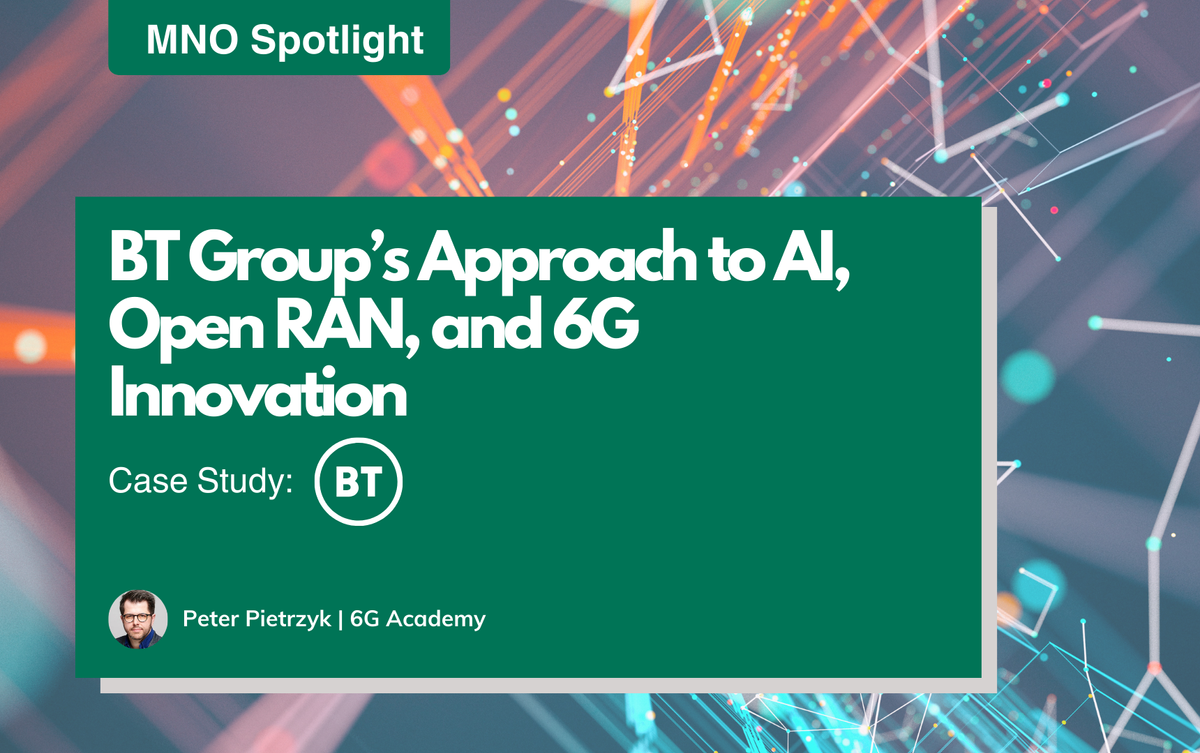
Explore Our 6G and Spectrum Innovation Course for 2025
Already selected by leading clients for early 2025, this course is designed to equip your team with cutting-edge insights on 6G and spectrum innovation. We offer the flexibility to tailor the agenda to your organization’s specific needs. Whether you’re focusing on AI-native networks, Open RAN, or spectrum sharing, we ensure your team is fully prepared for the next wave of technological advancements.
Discuss with us to customize the course for your team’s success!
